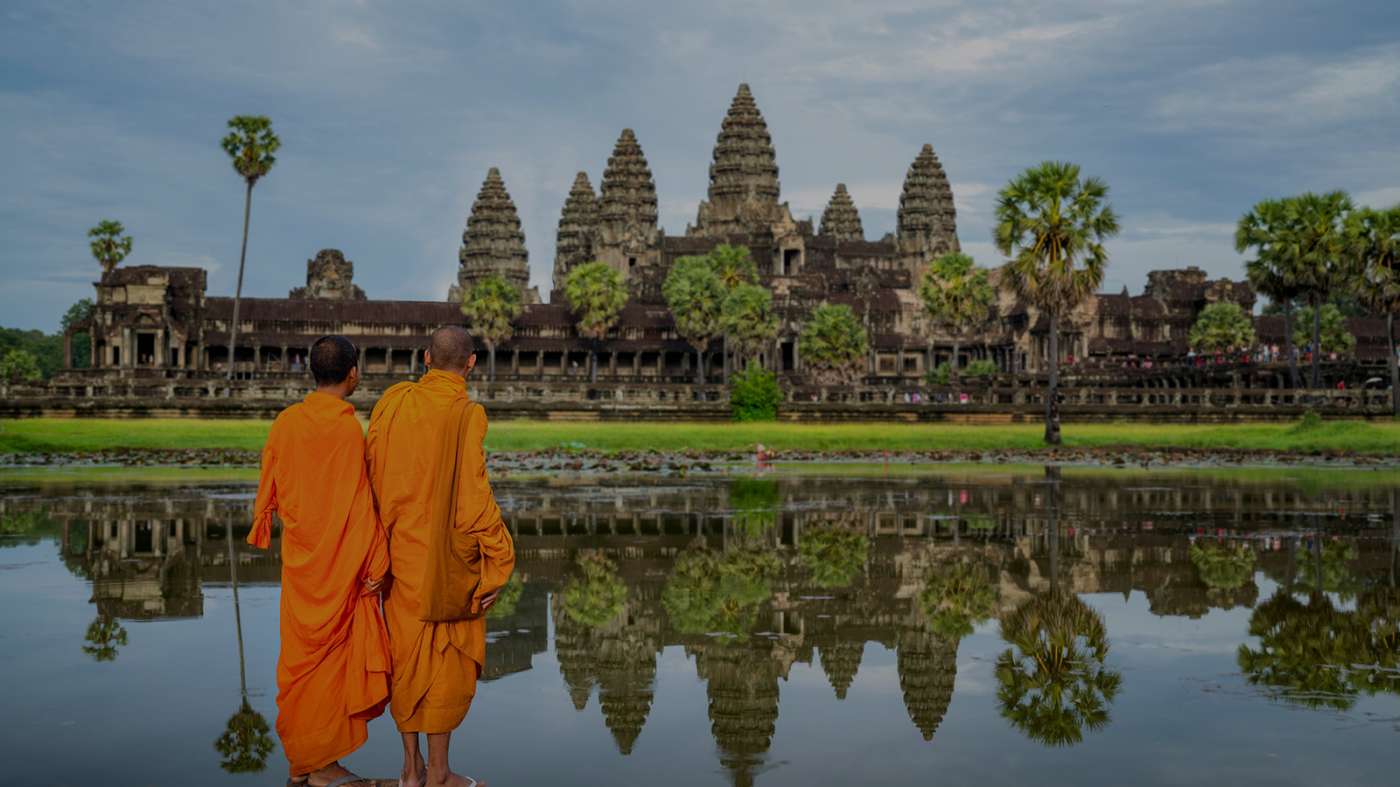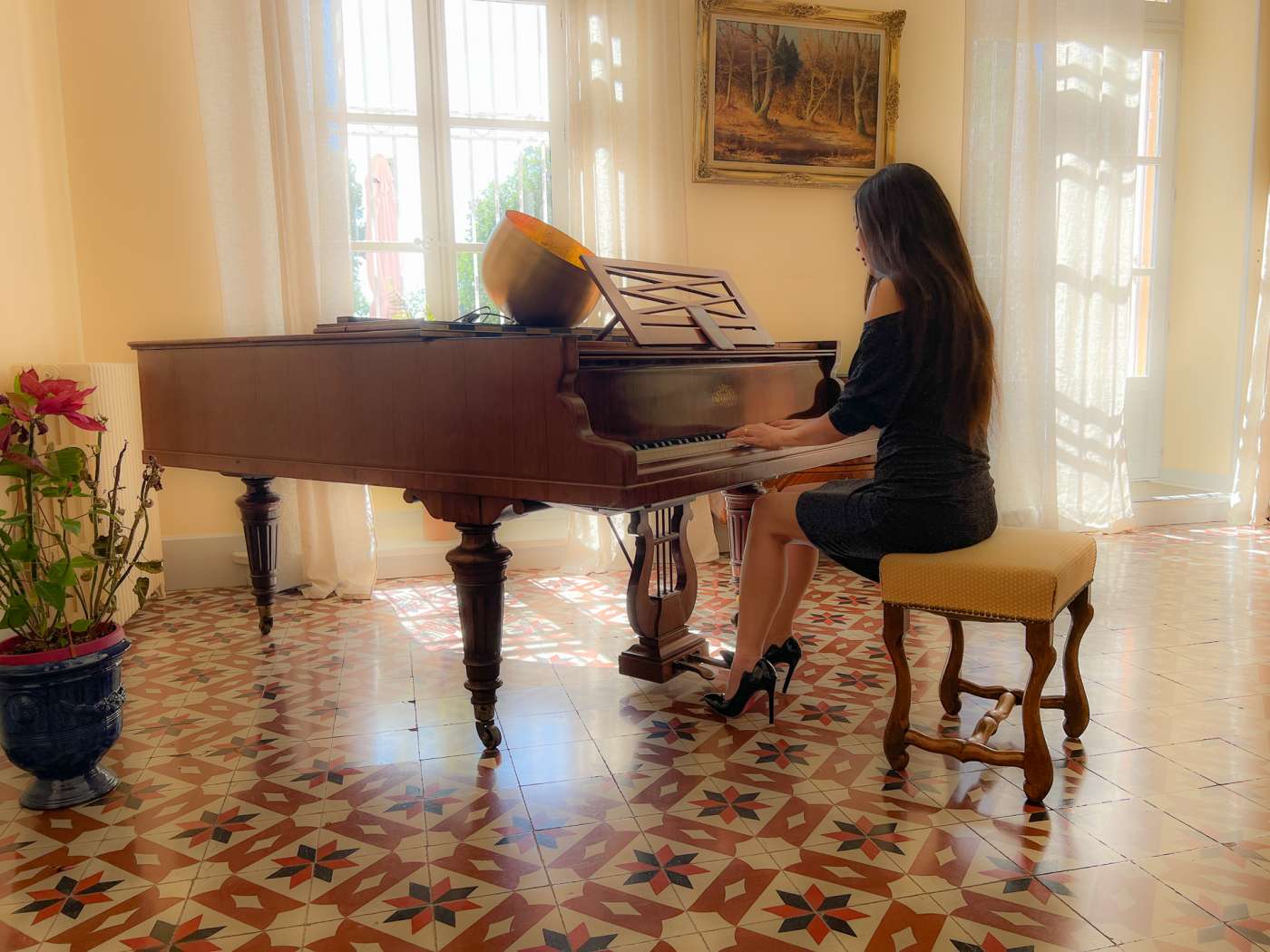A child of the French Republic : the France I love
This is a slightly different post that has been close to my heart for a long time and that I'm taking the time to write today. It's my personal story and it's not erotic so skip it if that's what you're looking for :)
Although I'm not a "local color" here in France, I'm of French nationality as my parents were naturalized before I came of age.
I'm a "banana": yellow on the outside, white on the inside :)
My grandparents were Chinese and emigrated to Cambodia to escape a war. My parents were born there. They belong to the "Teochew" community. It's a dialect derived from Cantonese, which I call "XIIIe Chinese" because I often hear it in this neighborhood haha.
So my parents are Chinese from Cambodia. They married according to tradition: my father chose my mother, but it was my maternal grandfather who chose my father for my mother. She met him on her wedding day, which seems inconceivable nowadays in France, even if it's not that long ago, even in Western culture. In fact, arranged marriages were in the majority in France until the Second World War (https://fr.wikipedia.org/wiki/Mariage_arrangé).
My mother was very beautiful and had several suitors, but my grandfather chose my father. He didn't come from a wealthy family, but his father (my paternal grandfather) was a great healer, and he certainly saw that my father also had a good heart (at least, I like to think so).
So they got married. After working for 2 years with my mother's parents, they opened their own store and were able to build up a good situation. They had 4 children and seemed to live comfortably. A visionary, my father had bought several rubber plantations to produce rubber.
Unfortunately, in 1975, the Khmer Rouge took power and established a dictatorship for 4 years. They murdered 20% of the population at the time, i.e. around 1.7 million Cambodians, their own people. There was no ethnic warfare (I'm not saying it was better), but it was an arbitrary regime where anyone could be killed on any pretext. They often exterminate intellectuals.
The film "The Killing Fields" is a good account of the horror of this period. It received multiple awards (3 Oscars, a Golden Globe and the BAFTA for best film in 1985). I saw this film as a child and it traumatized me.
As my father had foreseen events, the family fled just before the Khmer Rouge genocide. During the flight, my parents took refuge in a hut and my mother, who was pregnant, gave birth under machine-gun fire. Unfortunately, she lost the child.
They reached Thailand, where they lived for 2 years in a refugee camp. It was during this period that my mother learned to cook all the dishes of my childhood.
They arrived in France in the early 1980s as political refugees. My parents have always been grateful for the asylum they were offered.
My brothers and sisters went to French public school, learning to read and write.
My parents started from scratch: my father worked in a tire factory (ironically) and my mother cleaned houses. They protected their children from the war they had fled, from being uprooted.
I don't think my father ever forgave himself for this social descent with my mother. They had managed to build up a good situation for themselves in Cambodia, but were reduced to working as laborers and cleaning ladies in France. But at least they had escaped the genocide: they were alive, and their children were safe.
They made sure they had everything they needed, and enrolled them in a whole range of activities to keep them carefree. They practiced judo, went to art school, tried their hand at music, went to summer camps... In short, a "normal" French childhood.
I was born a few years later. I was not part of the program: I was an "accident", being 10 years older than the youngest sibling and 20 years older than the eldest. But that didn't stop the whole family from pampering me: I grew up surrounded by love and care, like an only child in a large family.
I grew up in a low-income housing estate and rubbed shoulders with many cultures. At the time, all communities lived in harmony, despite the negative media coverage of these areas.
My parents received state family allowances, even though they both worked.
My father works 3 shifts. As for my mother, in addition to her work, she looks after the whole household: she does the shopping, the meals, the housework, the laundry, and takes the time to play with us...
When I was little, I remember how the arrival of the washing machine changed their lives. I couldn't understand it at the time, but today I realize that life wasn't easy, and yet my mother did her utmost to keep her little ones afloat, so that they could have the most "normal and carefree" childhood possible. Today, we're so much assisted in our household chores with all these devices that supposedly save us time, but in the end, what do we really do with that time? Do we use it to spend quality time with the people we love most? Or are we wasting it in these vortexes of social networks... And on top of that, we complain about the mental burden of housework. Anyway, I digress :)
Like my brothers and sister, I go to public school. I love school and it's good to me. My teachers encourage me and I do almost all my schooling at the top of my class. I love learning at school, and my character adapts well to this method. I'm not saying it's the best there is, but it suits me and I thrive in it.
My parents don't speak French very well and I do my homework on my own, completely independently. I'll even help them with their administrative formalities with my brothers and sisters.
They dream that I'll have a good situation, certainly to ward off the one that has become theirs, and that I'll become an engineer. In this country with public schools, this dream is within reach.
Although I'm growing up in a town made up in part of low-income housing estates, I'm lucky that it offers cultural services within the reach of even the most modest: the music school and the municipal library. In other words, I spent a large part of my childhood here.
I was enrolled for piano at the age of 6, but I had to endure 2 years of solfeggio in which I understood almost nothing, and no one at home could help me. But that didn't stop me from progressing, thanks to a young piano teacher who encouraged me with kindness.
The video of Chopin's Fantaisie Impromptu :)
I attended these two cultural establishments until I graduated from high school. I devoured hundreds of books. I also learned several other instruments: alongside piano, I tried saxophone for a year, but didn't like it. Then I fell in love with the vibraphone, and finally percussion (timpani, drums, accessories).
I played in a wind band (like a symphony but without the strings) and met a lot of lovely, caring people.
Then, having passed my baccalaureate, I headed for a short higher education, as I wanted to be financially independent as soon as possible. I chose a DUT, again in the public sector: 2 years after the bac, I can theoretically work. I'm lucky enough to be on a scholarship and to also benefit from CROUS student accommodation.
I met some of my best friends during these 2 years of study, where the teachers pampered us and the courses were very well taught.
My results were good, and my teachers assured me that I would have to apply to schools to go on to higher education. I told them I wanted to be independent as soon as possible: "2 or 3 more years is nothing at your age. After that, it'll be more complicated. Put in your applications and you'll see. And you won't regret it."
I'm so grateful for their advice, they were right. I've been very lucky to have had such caring people along the way.
So I was lucky enough to be accepted for the 2 courses I applied for, and I chose the engineering school, still public, to please my parents. A few years later, they were moved to attend my graduation.
Later, when I was working as an engineer, I fulfilled my childhood dream and obtained my CAP in pastry-making as an independent candidate. I paid only a small enrolment fee, and an excellent online course, taught by 2 enthusiasts (which is unfortunately no longer maintained, obviously).
Today, I'm still learning the cello, another little girl's dream, and I've once again enrolled in a local music school, paying very little and benefiting from the loan of an instrument.
I don't begrudge paying taxes, I'm well aware of all that my family and I have benefited and still benefit from, in education, culture but also in health.
Thanks to the French system, even though I come from a family that fled a war and became modest, I was lucky enough to have had a good school education, to learn to play several musical instruments, to read a lot of books, and to become an engineer and a pastry chef.
Libertarianism is a philosophy of life that I eventually adopted as a matter of course, and one that shows the extent to which I have integrated the French spirit, the ultimate expression of a libertarian way of thinking.
Becoming a libertine is ultimately the culmination of my French upbringing :)
I want to keep believing in the French system. "We don't have oil, but we have ideas."
And above all, humanism and freedom, romanticism and love.
We are the heirs of the Enlightenment, and we must show ourselves worthy of it and continue to make it shine.



